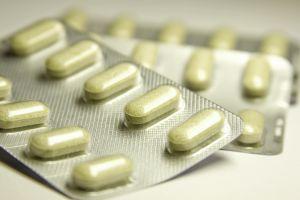Taking supplements and eating fortified foods are very popular ways to stay healthy today. Vitamins and minerals have found their way into medicines, sodas, gums and breakfast cereals. Though this is good for the most part, vitamins and herbs can have side effects. It’s important to learn about some of the most common vitamins and herbs and their side effects.
Vitamin C
Vitamin C is in many products that promote better immune systems. It is also in fortified juices, cereals and other foods. Since vitamin C is a water-soluble vitamin, it does not collect in your body. Excess is flushed out of your body in your urine. This doesn’t mean, though, that it doesn’t come with some side effects. Taking a daily accumulative amount more than 2,000 mg per day for an adult can cause diarrhea and an upset stomach.
Vitamin A
Vitamin A is found in both fortified foods and in fruits and vegetables such as pink grapefruit, pumpkins, carrots, sweet potatoes, cantaloupe and dark-green vegetables. The recommended daily amount for an adult is 700 mcg to 900 mcg a day, according to The Food and Nutrition Board. Anymore than that can cause poisoning called hypervitaminosis A. This poisoning occurs because the vitamin is stored in your body, accumulating over time. The skin may turn orange or yellow; loss of appetite, headache, desquamation, nausea, fatigue, dizziness, dry skin, cerebral edema, bone and joint pain may occur. Infants suffering from vitamin A toxicity may exhibit bulging fontanels, according to the University of Oregon’s Linus Pauling Institute of Micronutrient Research. It can also cause birth defects when used in excess during pregnancy.
Ginseng
The herb ginseng can be found in everything from energy drinks to gum. It is used to boost energy, enhance sexual performance and stimulate the mind. The recommended daily dosage is 200 mg per day, according to the American Academy of Family Physicians. More than this can cause jitters, hyperactivity, palpitations, increased blood pressure, asthma attacks and uterine bleeding in postmenopausal women.
Echinacea
Echinacea is used to treat colds, the flu, fevers and coughs, and has been used for these treatments for more than 400 years. It is found in teas, cold treatments and energy drinks. The daily recommended amount is 300 mg, according to the University of Maryland Medical Center’s guidelines. Possible side effects include skin rashes, allergic reactions, nausea, insomnia, dry mouth, fever, disorientation, joint and muscle pain, heartburn, diarrhea or constipation, and stomach ache.





